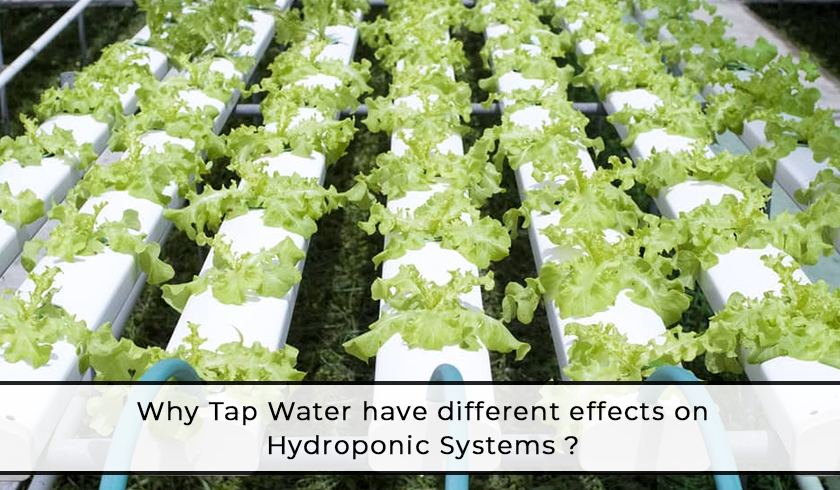Tap water is an integral part of a hydroponics system. It can be used in different ways to help plants grow and thrive. Tap water contains many components that affect the growth of your plants, but it also has some drawbacks.
Tap water does not generally have any chemicals added to it, which makes it ideal for hydroponic systems instead of other types of irrigation. This post will discuss what tap water is and how you can use it in your hydroponic system!
What is tap Water?
Tap water is a term that defines the supply of potable drinking water from public or private sources. Tap water can be provided in various qualities and quantities, and it has been known to contain many contaminants such as lead, arsenic, nitrates, parasites, etc. Tap water for hydroponics should not have these types of things present if you use tap water as your source for hydroponic systems.
The Importance Of Tap Water For Hydroponics
- Tap water is an essential component of a hydroponic system. It can be used in two different ways to help the plants grow and thrive:
- Tap Water Can Be Used As A Substitute For Nutrient Solutions In Hydroponics Systems
- Tap Water Is Also Important To The Growing Process, Helping With Proper Root And Stem Development
The components in tap down that affect hydroponics are also discussed below!
Tap water contains many components that affect the growth of your plants, but it also has some drawbacks. One such drawback is the oxygen levels present in tap water; when used in a hydroponic setup, tap water doesn't contain all the nutrients that store-bought water does.
Common Components In Tap Water That Affect Hydroponics:
- Chlorine: Chlorine is toxic to plants and can be found in tap water due to the chlorine used for purification. Tap water should never come into contact with hydroponic setups because of this. Still, you must use a de-chlorinator if your system does not filter out chlorine before using any tap water.
- Chloramines: Many water treatment plants use chloramines to kill bacteria in the water instead of plain chlorine. Chloramines are less effective at killing bacteria in the water, but they stay in solution better than chlorine. Tap water containing chloramines should not be used for hydroponics setups because it can affect plants and lead to pest problems due to bacterial growth from a lack of purification methods.
- Aeration: Tap water is often aerated by boiling or bubbling air through it before use. This causes oxygen levels to increase as well as removing any volatile organic compounds (VOCs) that may have been present beforehand such as birth control hormones, pesticides, and herbicides if a filter has not already done so."
There are many components in tap down that affect hydroponic systems and how they work with your plants. Tap water doesn't contain all the nutrients store-bought water does, but it's still great! If you're looking for an alternative way to create an oxygen-rich environment, then this might be perfect as well!
Conclusion
In general, if your Tap Water TDS is above 150ppm, it's not suited for hydroponic plants due to impurities of salt, mineral, etc. In simple words, if it's above 150ppm it is not suitable if Below 150ppm is Suitable.
Use only RO water for hydroponic plants if you are getting above 150 ppm.

